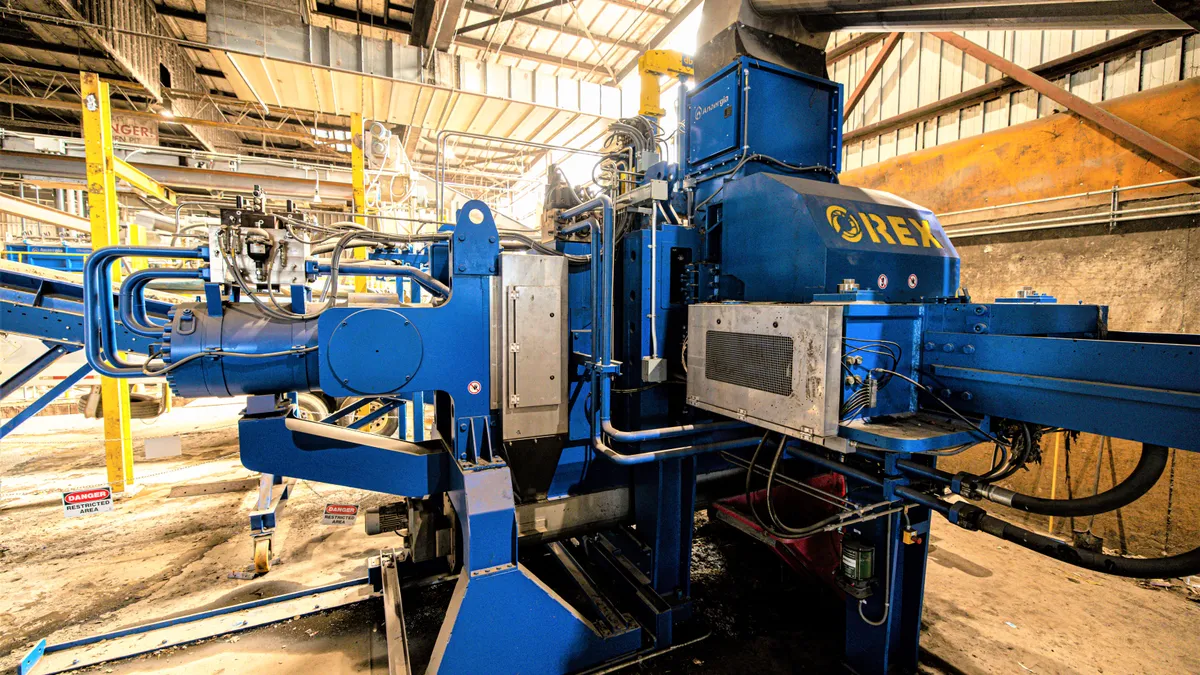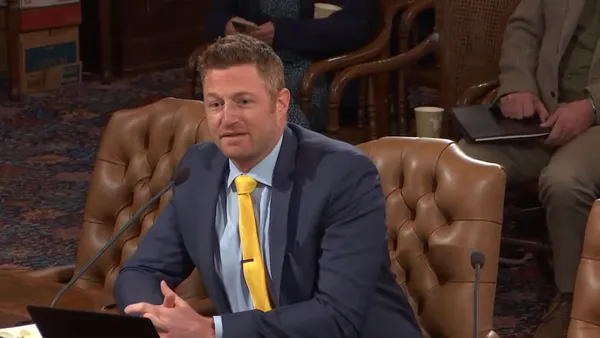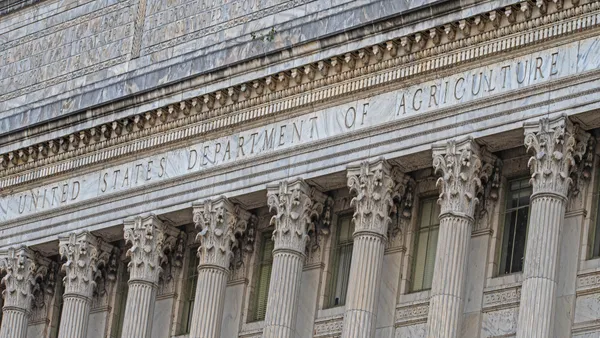Dive Brief:
- Organic waste company Anaergia said it will find equity partners for all new built, owned and operated projects to defray costs. The change in strategy comes after the company posted a steep drop in gross profit compared to the first quarter of last year and a slight uptick in revenue driven mainly by the one-time sale of an asset in Denmark.
- Anaergia’s Rialto Bioenergy Facility in California and several projects in Italy face challenges ramping up to full capacity. In Rialto, the delayed implementation of California’s SB 1383 law has caused “frustration” for both Anaergia and state-level partners who are eager to address the state’s organics diversion mandate in earnest, Chief Operating Officer Yaniv Scherson said on an earnings call Friday.
- “Please, don't give up hope on us,” CEO and founder Andrew Benedek said on the call. “It will take more time, but we are still in a very strong position to become the leader in the [RNG] space.”
Dive Insight:
The new capital-light strategy will shift Anaergia away from owning and deriving revenue from assets directly, instead finding equity partners and driving revenue through development fees, capital sales and operating and management contracts, according to filings.
Anaergia’s executives previously said during the company’s Q4 earnings call that a strategic review was in the works as issues with feedstock at Rialto became more evident. The company’s stock price has tumbled since the start of the year, from a high of $4.45 per share on Jan. 27 to 53 cents per share at the end of Tuesday.
Anaergia ended the quarter with gross profits of $3.1 million (Canadian), down 57.2% compared to the first quarter of 2022, driven by project cost overruns and issues with capital sales at brownfield sites. Revenue was $36.6 million, up 2.8%, and the company posted a net loss of $11.3 million, compared to a loss of $16.4 million in the first quarter of 2022.
The company is also in the midst of management changes. CFO Paula Myson resigned on April 18. Executives also revealed they were searching for a new chief auditor, which Benedek said they hoped to hire by the end of May. Anaergia’s former CFO and current chief development officer, Hani Kaissi, is serving in the role on an interim basis.
The company has faced challenging market conditions in California, where much of its U.S. operations are based. The Rialto facility opened in 2020, but delayed enforcement of the City of Los Angeles’ commercial organics collection program significantly slowed the facility’s ramp-up. Continuing uncertainty about how quickly customers will sign up for organics collection and how strongly LA will enforce the mandate are further complicating projections for Rialto, Scherson said.
“This issue needs to be resolved between the major stakeholders and L.A., and unfortunately we're sitting on the sideline,” Scherson said. “On a long-term basis, this asset has tremendous value, but we do have a timing issue this year into '24.”
Anaergia’s Italian built, owned and operated facilities have also experienced delayed electrical utility connections and other permitting issues. As a result, the six facilities it planned to start up there as early as this quarter aren’t slated to be fully operational until the fourth quarter of this year, executives said.
Still, Anaergia’s leaders said that regulatory changes and incentives will provide tailwinds for the facilities it’s already begun work on. Scherson cited new incentives through the Inflation Reduction Act in the United States and the REPowerEU plan, which doubled the amount of biomethane that EU countries aim to produce by 2030 when it was enacted last year.
“These programs are massive tectonic shifts in driving infrastructure deployment of RNG assets,” Scherson said. “The challenge is that they take time to implement all the rules and have clarity and certainty before customers can decide on the actionability of projects.















